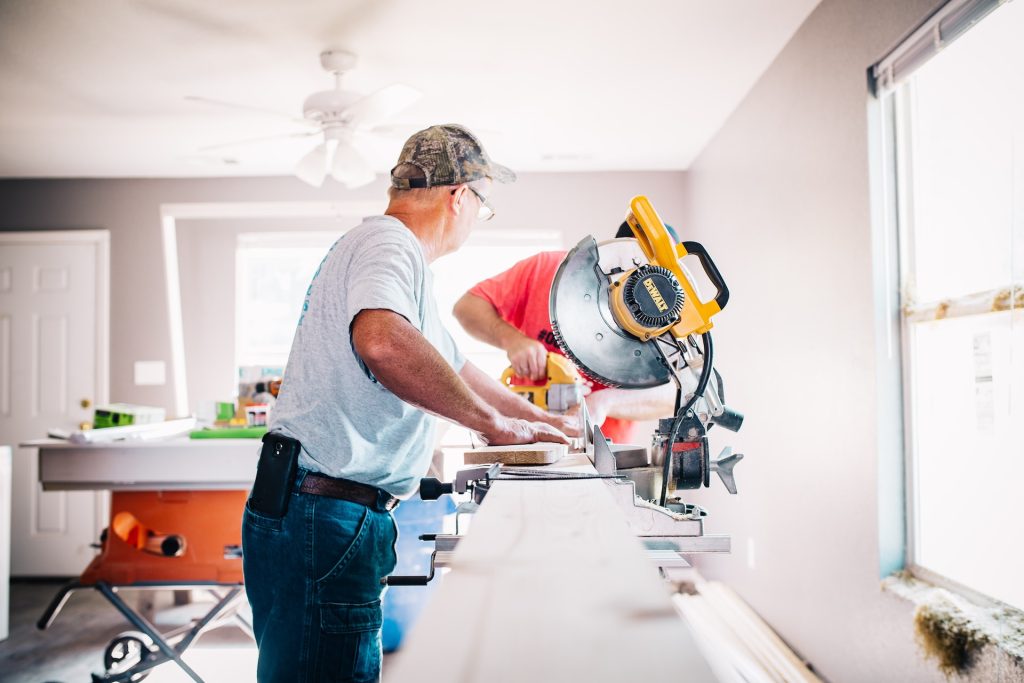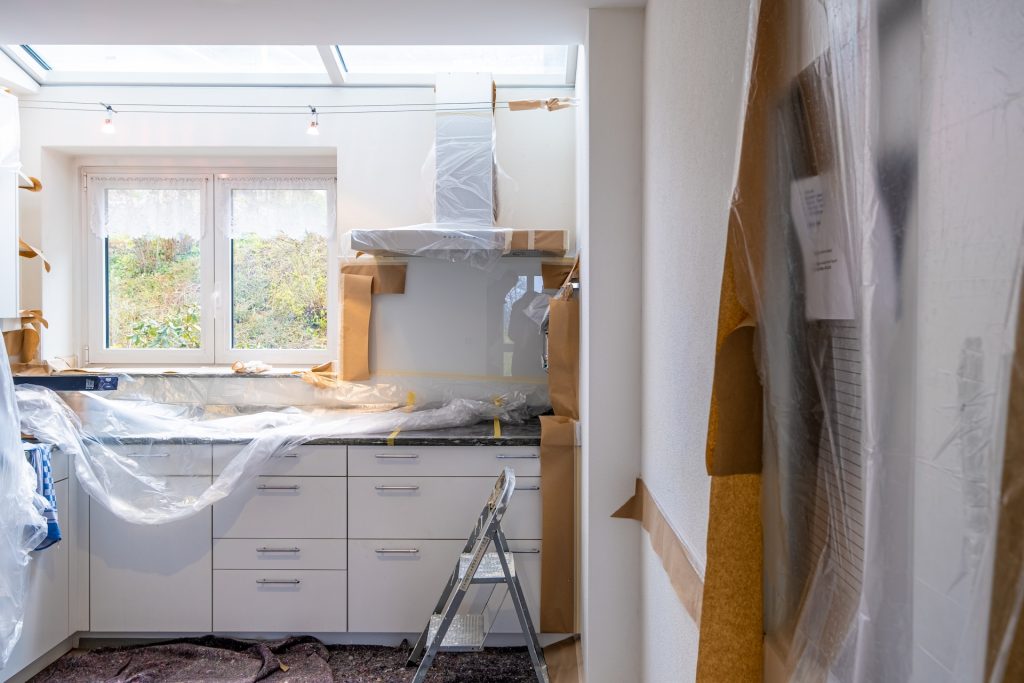Popular Posts

Understanding San Diego's ADU Permit Process: A Step-By-Step Guide
While you’ve considered the benefits of adding an Accessory Dwelling Unit (ADU) to your property, you may feel overwhelmed at the idea of combing through the legalities and obtaining an official San Diego ADU permit. While it’s not the most exciting part of building an additional space, the ADU permit process is a crucial step for ensuring the overall project is smooth and successful.
In this comprehensive guide, we will walk you step-by-step through the entire process, from initial research and planning to submitting the permit application, navigating permit fees, and exploring the numerous benefits of building an ADU. Whether you’re a homeowner looking to maximize your property’s potential or an investor seeking additional rental income, this guide will equip you with the knowledge and insights needed to navigate San Diego’s ADU permit process with confidence.
Rather focus on the fun and leave the paperwork to the professionals? At ADU Geeks, we are ready and willing to complete the permit process on your behalf, so you can focus on designing your perfect space!
Understanding ADUs in San Diego
Before diving into the permit process, it’s important to understand ADUs in San Diego. In simple terms, an ADU is a secondary housing unit that is either attached to or located on the same lot as a primary residence. ADUs can be converted from existing structures, such as garages or newly constructed as standalone units. They offer the opportunity for multi-generational living, rental income, or extra space without the need for extra land.
Research and Planning
The first step in obtaining an ADU permit in San Diego is to conduct thorough research and plan your project accordingly. You can start by familiarizing yourself with the local zoning regulations, building codes, and any specific requirements set by the City of San Diego. Some key considerations include setbacks, height limitations, parking requirements, and design guidelines. It’s also essential to check if your property is located within any historic districts or environmentally sensitive areas that may have additional restrictions. Laws and regulations vary city to city, so it’s essential to focus on the legalities that pertain to your specific city.
Engaging with a Design Professional
To ensure compliance with local regulations and to streamline the permit process, it is highly recommended that you work with a qualified design professional. Architects, designers, or ADU specialists can help you create a well-designed and code-compliant ADU that meets your needs and aligns with the San Diego permitting requirements. They will also prepare the necessary architectural drawings, site plans, and construction documents that will be submitted as part of your permit application.
ADU Geeks has an experienced team of designers and consultants that can walk you through the design process and ensure the project is compliant and meets permitting requirements.
Preparing the ADU Permit Application

With the help of your design professional, you will need to prepare a comprehensive permit application package for your ADU project. The application typically includes architectural plans, structural calculations, energy compliance documentation, and other relevant information. Additionally, you may need to provide a site plan, showing the location of the ADU on your property, as well as floor plans and elevations detailing the proposed construction.
Submitting the Application
Once your permit application is complete, it’s time to submit it to the City of San Diego’s Planning & Development Services Department. ADU Geeks ensures the application is submitted according to the city’s current processes and ensures all required documents and fees are submitted beforehand to avoid unnecessary delays. The city will review your application to ensure it complies with local regulations and building codes.
ADU Permit Fees
The fees for obtaining an ADU permit in San Diego can vary depending on a variety of factors that include the size of the proposed ADU and the complexity of the project. A complete list of the various fees can be found on the City of San Diego’s Development Services page.
Working with a professional like ADU Geeks will ensure you’re well-aware of the fees that pertain to your specific project ahead of time.
The Permit Review Process
After submitting your ADU permit application, it will go through a review process within the city’s Development Services Department. The review typically involves multiple departments, including Planning, Building, and Fire, depending on the scope of your project.
Each department will assess your plans for compliance with their specific regulations and requirements. The review process may take several weeks or longer, depending on the complexity of your project and the workload of the city’s departments.
Approval and Permit Issuance
Once your ADU permit application successfully passes the review process, you will receive approval from the city, and a permit will be issued. This permit allows you to proceed with construction according to the approved plans. It’s very important that you follow the approved plans and any conditions set forth by the city during construction. Failure to comply with these requirements could result in penalties or the revocation of your permit—which would put a significant and costly hold on your ADU plans.
Construction and Inspections

Once you have your permit in hand, you can move forward with the construction of your ADU! It is crucial to hire licensed and experienced contractors for the job because the city will conduct inspections at various stages to ensure compliance with building codes and safety standards. These inspections may include foundation inspections, framing inspections, electrical and plumbing inspections, and final inspections. You can either find your own contractor, or we recommend using an ADU Geeks preferred contractor to possibly save on time, energy, and money.
Completion and Certificate of Occupancy
After completing the construction and passing all required inspections, you will need to obtain a Certificate of Occupancy (CO) from the city. The CO certifies that your ADU meets all building and safety requirements and is fit for occupancy. It is essential to have this certificate as it ensures your ADU is legal and allows you to use it as intended.
While obtaining an ADU permit in San Diego may seem like a daunting process, understanding the steps involved can make it much more manageable. By conducting thorough research, engaging with design professionals, and following the permit application process you can navigate the San Diego ADU permit process successfully and be on your way to building your space.
As experts in San Diego’s permit process, ADU Geeks can undergo the entire process of obtaining your ADU permit so you can focus on the benefits of creating extra space.
Get Started Today
Many homeowners and investors find the time commitment, pile of paperwork, and overall process to be discouraging. Yet, with ADU Geeks, you can confidently embark on your project knowing that you have a dedicated partner who will streamline the permit process and help you unlock the full potential of your property.
ADU Geeks is ready and willing to take your ADU project from conception to completion.
Put us on your team and we’ll walk you through the entire process, including site prep, design, permitting, and construction.
Best of all, you have a front-row seat to watch your new ADU come to life.
Book a consultation call with us today. It’s free, it takes only 15 minutes of your day, and, when we’re done, we’ll be able to figure out what ADU option works best for you, your family, and your property.
Do you have questions?
We love questions.
Make sure you bring them up during your 15-minute call so we can address all of your concerns. We’re looking forward to hearing from you and setting you up for the retirement home you deserve.
This material has been prepared for informational purposes only, and is not intended to provide, and should not be relied on for, tax, legal, or accounting advice. You should consult your own tax, legal, and accounting advisors before engaging in any transaction.











